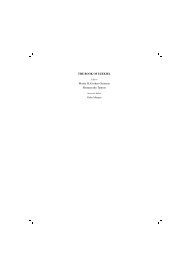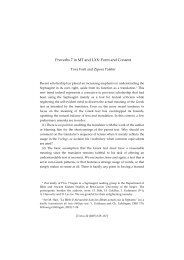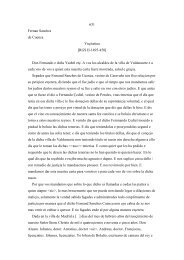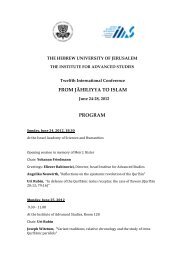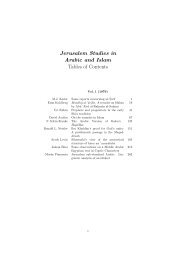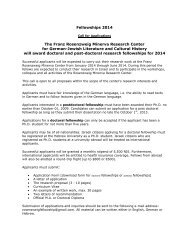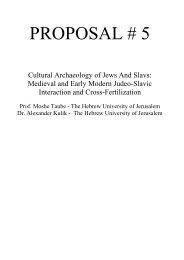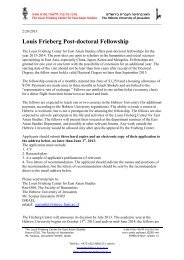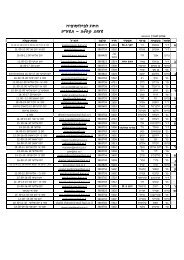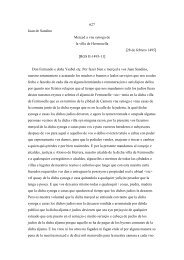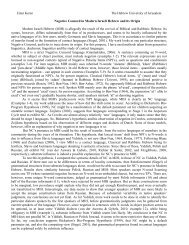Baber Johansen
Baber Johansen
Baber Johansen
Create successful ePaper yourself
Turn your PDF publications into a flip-book with our unique Google optimized e-Paper software.
34<br />
falls mentally ill after having declared his intent to fast, is obliged, once<br />
he recuperates his mental capacity during the same RamaÃān, to perform<br />
the fasting of all the days during which he remained benighted (but he<br />
does not have to perform all the prayers that he missed during his<br />
illness). The Íanafīs hold that if s/he remains mentally ill during the<br />
whole of RamaÃān, s/he is not obliged to make up for the fasting on<br />
which s/he defaulted. If s/he remains mentally ill for many years and then<br />
regains control over his/her mental faculties in a month of RamaÃān, the<br />
two doctrines diverge. For the Íanafīs, the convalescent has to perform<br />
(adÁÞ) the fasting of the RamaÃān in which s/he regained her mental<br />
health and s/he has to make up (qaÃÁÞ) for that part of the fasting on<br />
which s/he defaulted during the first RamaÃān in which s/he fell mentally<br />
ill. According to MÁlik’s doctrine, the convalescents have to make up for<br />
all the fasting on which they defaulted during their mental illness. 88<br />
In the ninth century, two other law schools, the ShÁfiÝÐ and the Íanbalī,<br />
hold that such an obligation to fulfill the missed cultic obligations cannot<br />
apply to the mentally ill. They argue that a legal obligation is valid and<br />
meaningful only if addressed to an actor who understands it and is able to<br />
fulfill it. As the mentally ill person does not fulfill both conditions, he<br />
cannot, once he comes back to his senses, be obliged to perform the<br />
cultic acts that he missed during his mental illness. It seems that the<br />
fiqh’s development of its notion of legal capacity during the ninth century<br />
led the ShÁfiÝÐs and the Íanbalīs to apply it also to cultic acts. 89 The<br />
development of a clearly defined concept of capacity leaves its traces on<br />
fiqh’s notion of the cultic obligations of the irrational actor.<br />
The debate on the limits of the concept of capacity as a condition for the<br />
obligation to perform legally prescribed acts is most complex within the<br />
Íanafī school of law. One position, Iraqi in background, holds that God,<br />
through the cosmic causes of time and space, determines cultic<br />
obligations in a way that leaves no choice to human beings. No<br />
contradiction between the determining force of the cosmic causes and the<br />
doctrine of legal capacity arises in the case of rational legal actors. They<br />
have to fulfill the obligations that are caused by time and space and they



